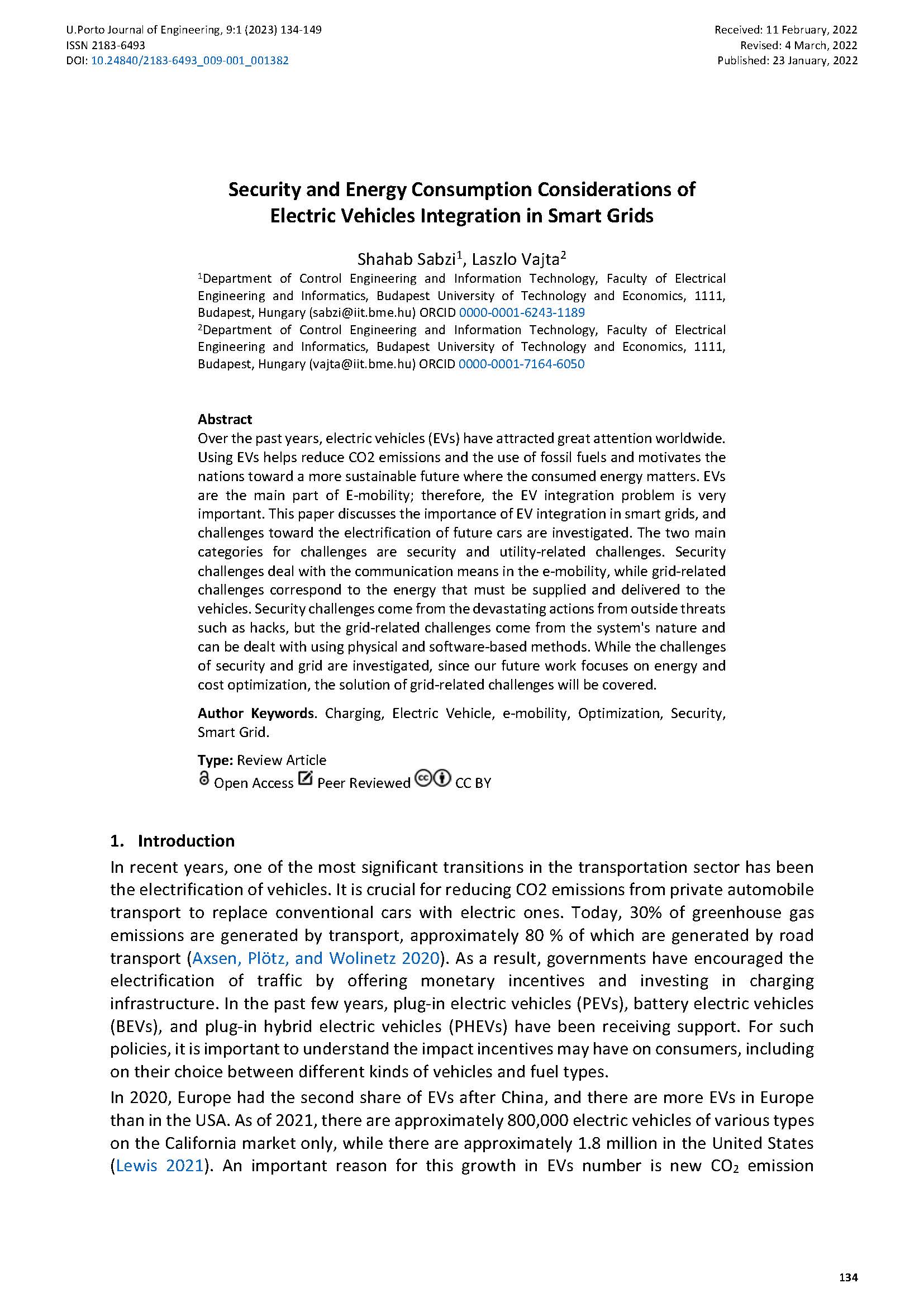Security and Energy Consumption Considerations of Electric Vehicles Integration in Smart Grids
Main Article Content
Abstract
Over the past years, electric vehicles (EVs) have attracted great attention worldwide. Using EVs helps reduce CO2 emissions and the use of fossil fuels and motivates the nations toward a more sustainable future where the consumed energy matters. EVs are the main part of E-mobility; therefore, the EV integration problem is very important. This paper discusses the importance of EV integration in smart grids, and challenges toward the electrification of future cars are investigated. The two main categories for challenges are security and utility-related challenges. Security challenges deal with the communication means in the e-mobility, while grid-related challenges correspond to the energy that must be supplied and delivered to the vehicles. Security challenges come from the devastating actions from outside threats such as hacks, but the grid-related challenges come from the system's nature and can be dealt with using physical and software-based methods. While the challenges of security and grid are investigated, since our future work focuses on energy and cost optimization, the solution of grid-related challenges will be covered.
Downloads
Article Details

This work is licensed under a Creative Commons Attribution 4.0 International License.
Authors who publish with this journal agree to the following terms:
- Authors retain copyright and grant the journal right of first publication with the work simultaneously licensed under a Creative Commons Attribution License that allows others to share the work with an acknowledgement of the work's authorship and initial publication in this journal.
- Authors grant the journal the rights to provide the article in all forms and media so the article can be used on the latest technology even after publication and ensure its long-term preservation.
- Authors are able to enter into separate, additional contractual arrangements for the non-exclusive distribution of the journal's published version of the work (e.g., post it to an institutional repository or publish it in a book), with an acknowledgement of its initial publication in this journal.
- Authors are permitted and encouraged to post their work online (e.g., in institutional repositories or on their website) prior to and during the submission process, as it can lead to productive exchanges, as well as earlier and greater citation of published work (See The Effect of Open Access).

